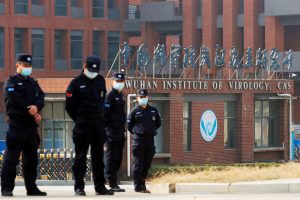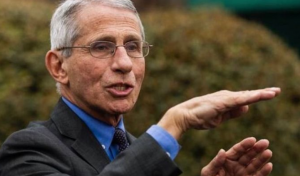March 16 is celebrated as National Vaccination day, also known as National Immunization Day and in the time when India is currently undergoing COVID-19 vaccination drive, there are several myths related to inoculation that is worrying some section of society resulting into staying away from getting one.
According to doctor Anuneet Sabharwal, MBBS, MD (Psychiatry) and Founder and Director of The Happy Tree Deaddiction And Mental Health Hospital, clarifies few facts related to the vaccination and why people should not worry much and participate in large numbers.
“First of all let me start by talking about what is the vaccine because that’s the most important thing that needs to be answered. Now when we talk about immunity there are two kinds of immunity, one is passive immunity and another one is active immunity,” toSabharwal, who got both the doses of COVID-19 vaccine, told Opoyi.

“A passive immunity basically means somebody else is sending soldiers in for you for instance you take immune dabblers for certain disorders or diseases for which you need to take action immediately. Now in those events what we do is we directly administer antibodies.
“The vaccine is active immunity so what we do with the vaccine is we essentially dilute the organism in this case virus by 100 or 10,000 or million and then we inject in million so that body can start to form its own army against that organism. Now this causes active immunity which means the body has itself generated immunity against that organism and that’s why a vaccine are the way to rely on when you look at eradicating diseases,” he added.
Sabharwal now talks about side-effects which is a major concern of many citizens.
“Why you experience side effects after some vaccines is because it’s in way very diluted form of an infection. There is nothing to worry about because all vaccines are tested for safety and efficacy before they jump into the market,” he said.
Giving his own example, he says that “when I took vaccine both times I experienced fever, cold-like symptoms for a couple of days and after that, it resolved so you should expect this COVID-19 vaccine. It’s nothing to worry about. I am fine and I am doing my work. Yes, I also experienced body ache and lethargy for a day that’s it,” he said.
Dr Kabir k Sethi, Consultant Cardiologist, Delhi Heart and Lung Institute, New Delhi, agrees that there are many myths and misconceptions related to vaccines.
“There
are many myths and misconceptions related to corona vaccine. I would like to
say that these vaccines are just like any other vaccine that we have taken in the past or intend to
take in the near future. One can experience minor symptoms such as pain at the
injection site, mild redness or fever however these symptoms should not refrain
us from taking the jab as they can be seen routinely with any other vaccine,” Sethi told Oppyi.

“The
population that we are targeting right now are front line workers,health care
professionals, paramedics,those more than 50 years of age with or without
co-morbidities or those less than 50
with co morbidities such as hypertension,diabetes or coronary heart disease.
The Government is putting in all efforts to make the vaccine readily available
for the general population at the earliest however this may take sometime as
vaccinating a population of 1.3 billion is a task in itself,” he said.
Adding further he says that “being
a cardiologist I get to see a number of patients who are on blood thinners and
who also happen to suffer from a number of co-morbidities.”
“The basic concern all
these patients have is that whether they can safely take the jab or not. I
would like to clearly point out that those who are on blood thinners can safely
take the jab as being on blood thinner(s)is not a contra indication for getting
the shot. The ones on blood thinners like warfarin, acitrom should ensure the
most recent INR is less than 3, the ones on newer preparations such as rivaroxaban, dabigatran, apixaban can
delay the next dose by a couple of hours
until the jab is taken.
“Skipping the dose is not a necessity. Once the
shot is taken all patients ( especially the ones on blood thinners)should
ensure they compress the injection site firmly for a period of 5 to 15 minutes
and wait in the observation area for minimum 30 minutes after the shot for any
adverse symptoms, if at all one gets any,” he said.
In India, Oxford University-AstraZeneca’s Covishield vaccine, manufactured by Serum Institute of India, and Bharat Biotech’s Covaxin are being used for the vaccination programme and the doctor says that it’s safe and sound.
“The difference between the vaccines available in India and the Pfizer vaccine that is doing rounds in the US is that the latter is mRNA vaccine. mRNA vaccine basically means you modulated the genetics of organism to prepare the vaccine whereas the other two have been around for decades now so the efficacy and the safety for them are well established,” said Sabharwal.






